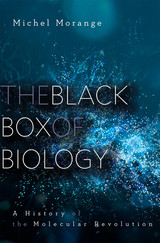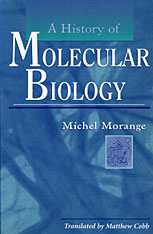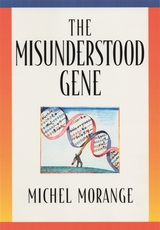
In this masterful account, a historian of science surveys the molecular biology revolution, its origin and continuing impact.
Since the 1930s, a molecular vision has been transforming biology. Michel Morange provides an incisive and overarching history of this transformation, from the early attempts to explain organisms by the structure of their chemical components, to the birth and consolidation of genetics, to the latest technologies and discoveries enabled by the new science of life. Morange revisits A History of Molecular Biology and offers new insights from the past twenty years into his analysis.
The Black Box of Biology shows that what led to the incredible transformation of biology was not a simple accumulation of new results, but the molecularization of a large part of biology. In fact, Morange argues, the greatest biological achievements of the past few decades should still be understood within the molecular paradigm. What has happened is not the displacement of molecular biology by other techniques and avenues of research, but rather the fusion of molecular principles and concepts with those of other disciplines, including genetics, physics, structural chemistry, and computational biology. This has produced decisive changes, including the discoveries of regulatory RNAs, the development of massive scientific programs such as human genome sequencing, and the emergence of synthetic biology, systems biology, and epigenetics.
Original, persuasive, and breathtaking in its scope, The Black Box of Biology sets a new standard for the history of the ongoing molecular revolution.

Every day it seems the media focus on yet another new development in biology--gene therapy, the human genome project, the creation of new varieties of animals and plants through genetic engineering. These possibilities have all emanated from molecular biology.
A History of Molecular Biology is a complete but compact account for a general readership of the history of this revolution. Michel Morange, himself a molecular biologist, takes us from the turn-of-the-century convergence of molecular biology's two progenitors, genetics and biochemistry, to the perfection of gene splicing and cloning techniques in the 1980s. Drawing on the important work of American, English, and French historians of science, Morange describes the major discoveries--the double helix, messenger RNA, oncogenes, DNA polymerase--but also explains how and why these breakthroughs took place. The book is enlivened by mini-biographies of the founders of molecular biology: Delbrück, Watson and Crick, Monod and Jacob, Nirenberg.
This ambitious history covers the story of the transformation of biology over the last one hundred years; the transformation of disciplines: biochemistry, genetics, embryology, and evolutionary biology; and, finally, the emergence of the biotechnology industry.
An important contribution to the history of science, A History of Molecular Biology will also be valued by general readers for its clear explanations of the theory and practice of molecular biology today. Molecular biologists themselves will find Morange's historical perspective critical to an understanding of what is at stake in current biological research.

At a time when the complete human genome has been sequenced and when seemingly every week feature news stories describe genes that may be responsible for personality, intelligence, even happiness, Michel Morange gives us a book that demystifies the power of modern genetics. The Misunderstood Gene takes us on an easily comprehensible tour of the most recent findings in molecular biology to show us how—and if—genes contribute to biological processes and complex human behaviors.
As Morange explains, if molecular biologists had to designate one category of molecules as essential to life, it would be proteins and their multiple functions, not DNA and genes. Genes are the centerpiece of modern biology because they can be modified. But they are only the memory that life invented so that proteins could be efficiently reproduced. Morange shows us that there is far more richness and meaning in the structure and interactions of proteins than in all the theoretical speculations on the role of genes.
The Misunderstood Gene makes it clear that we do not have to choose between rigid genetic determinism and fearful rejection of any specific role for genes in development or behavior. Both are true, but at different levels of organization. Morange agrees with those who say “we are not in our genes.” But he also wants us to understand that we are not without our genes, either. We are going to have to make do with them, and this book will show us how.
READERS
Browse our collection.
PUBLISHERS
See BiblioVault's publisher services.
STUDENT SERVICES
Files for college accessibility offices.
UChicago Accessibility Resources
home | accessibility | search | about | contact us
BiblioVault ® 2001 - 2024
The University of Chicago Press









